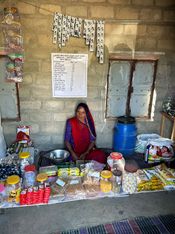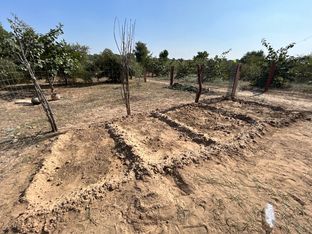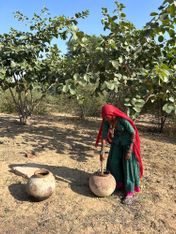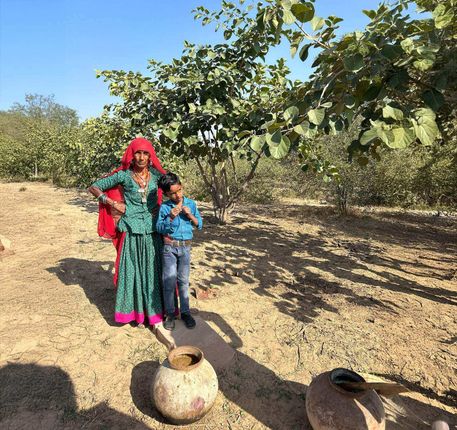
Gardens in the desert: Transforming lives in Rajasthan
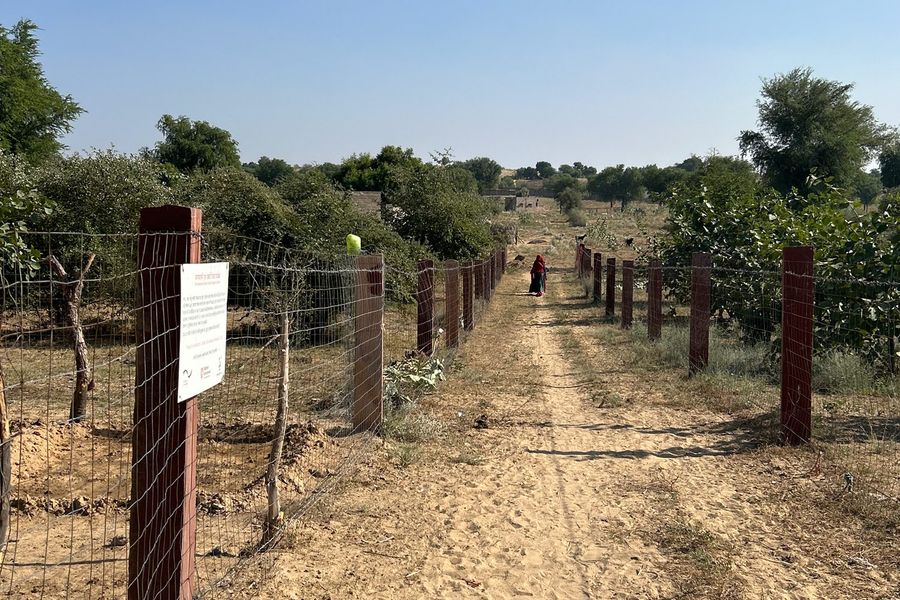
In the heart of the Thar Desert in western Rajasthan in India, where drought and extreme weather conditions make survival a daily challenge, it is a small patch of diverse greenery that appears alsmost like an oasis. It is Chuni Devi's flourishing garden, that is not only beautiful to look at but also a lifeline for her and her family.
Three years ago, her land consisted of barren, dry and cracked soil that yielded nothing. She was struggling to provide food for her family in Rajasthan’s unforgiving Thar Desert. Today, thanks to Malteser International, our partner UNNATI, and funding from the Federal Ministry for Economic Cooperation and Development (BMZ), her garden is home to more than 100 plant species, including fruit-bearing trees and indigenous plants once on the verge of disappearing. She is one of 200 families who have gained food security and a sustainable income through climate-resilient farming.
Chuni Devi received seeds of several local plants, agriculture tools, and training in sustainable farming. She learned how to create organic pesticides using natural materials like leaves and cow dung, ensuring her crops remained healthy without relying on chemical products. A fenced area protects her crops from stray animals, while a rainwater tank - built in cooperation with a government program - ensures sustainable growth even during the dry months. If her crops ever show signs of disease, she can rent a sprayer from the agricultural equipment center, securing her livelihood for the future.
Her dedication and ambition have turned her once-barren land into a thriving oasis, proving that even the harshest landscapes can bear fruit with the right knowledge and perseverance.
A sustainable source of food and income
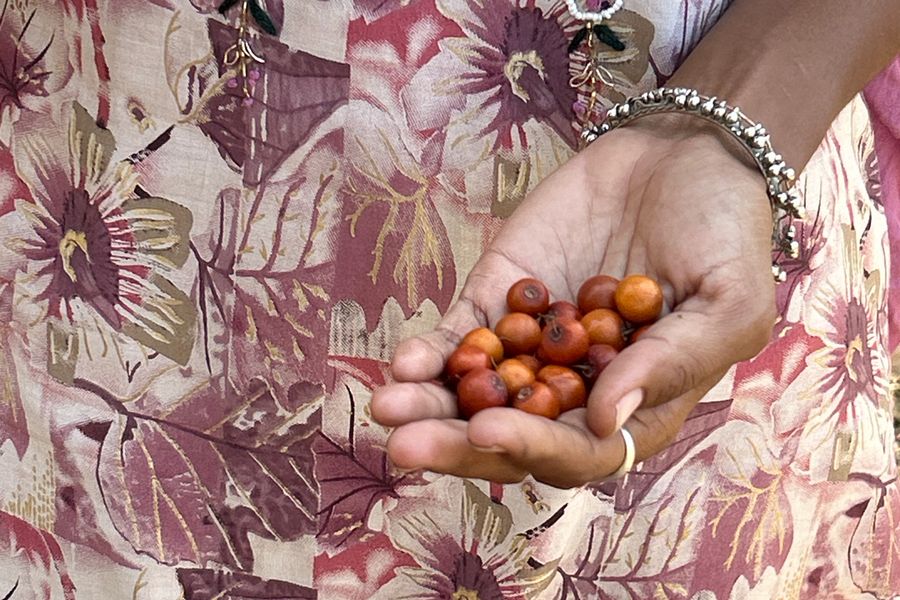
With the trees now bearing fruit, Chuni Devi can store food for her family for months ahead. The leaves from the trees provide fodder for the goats she received through the project, while she collects organic waste in a compost pit, to enhance the soil fertility and allowing her to even cultivate vegetables.
Her garden also provides direct income. By selling surplus fruits and other produce at the market, she earns between €280 and €330 per season with minimal time used for maintenance.
This initiative stands out for its sustainability. Chuni Devi has expanded her garden to more species, including local and endangered ones like the Khejri tree. Her garden has become a thriving ecosystem, increasing the availability of fruits and fodder in the region.
The success of Malteser International and UNNATI’s approach lies in its long-term vision and integrated approach. The project goes beyond agricultural training and strengthens resilience against drought and climate change through long-term counseling and follow-ups, ensuring the people we work with can maintain their gardens during the critical first years.
A path towards resilience
Chuni Devi’s story is a testament to the power of community-driven, sustainable solutions in the face of climate adversity.
(April 2025)

